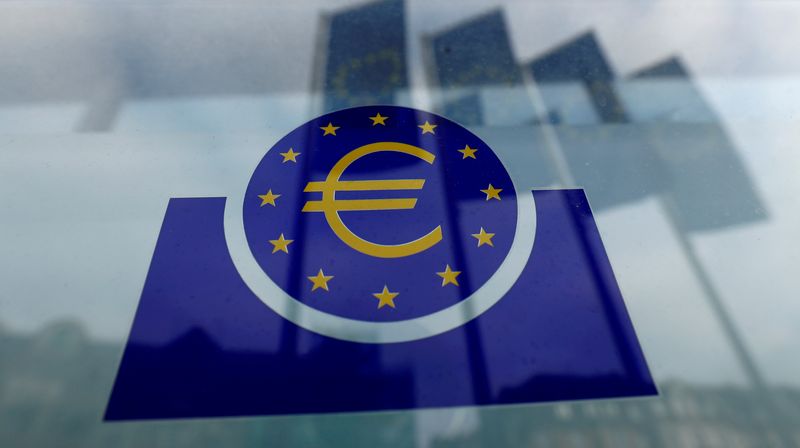By Francesco Canepa and Balazs Koranyi
SINTRA, Portugal (Reuters) - The European Central Bank will buy bonds from Italy, Spain, Portugal and Greece with some of the proceeds it receives from maturing German, French and Dutch debt in a bid to cap spreads between their borrowing costs, sources told Reuters.
The ECB will kick off this rebalancing on Friday to prevent financial fragmentation among euro zone countries from getting in the way of its plan to raise interest rates - with an additional scheme due to be unveiled next month.
The central bank has divided the euro zone's 19 countries into three groups - donors, recipients and neutrals - based on the size and speed of a rise in their bond spreads in recent weeks, according to conversations with a half a dozen people at the ECB's annual forum in Sintra, Portugal. The spreads are gauged against German bonds, which serve as a de-facto benchmark for the single currency area.
The ECB will channel towards the recipients part of the cash from maturing bonds it bought from "donor" countries under its Pandemic Emergency Purchase Programme, with neutrals acting as a buffer, the sources said.
The lists, which will be reviewed monthly, mirror the division between peripheral and core countries that emerged at the time of euro zone's first debt crisis a decade ago.
Recipients include a handful of countries perceived by investors as riskier due to their high public debt or meagre growth, such as Italy, Greece, Spain and Portugal, the sources said.
Their list was initially longer before the Governing Council pared it down.
The donor group is made of around half a dozen so called core countries considered safer and includes Germany, France and the Netherlands, according to the sources.
An ECB spokesperson declined to comment for this story.
While redemptions in July and August are substantial, the ECB knows that merely reinvesting of the proceeds will not be enough to calm investors.
So it has sped up work on a new tool that will allow it to make new purchases where they are needed if a country meets certain conditions.
This may be ascertained by the European Commission, based on its fiscal rules or economic recommendations, or by the ECB itself via a debt-sustainability assessment, as it did with Greece a few years ago, sources have told Reuters.
The former option would keep the ECB above the fray but make it dependent on another institution. The latter would give central bankers a greater say but open them to accusations of getting involved in politics.

The ECB may then drain cash from the banking system to offset its bond purchases, most likely via special auctions at which banks can secure more favourable interest rates if they park funds at the central bank.
Policymakers have yet to decide whether to announce the size of the scheme, as they hope its mere announcement will stabilise markets and they may not have to use it.